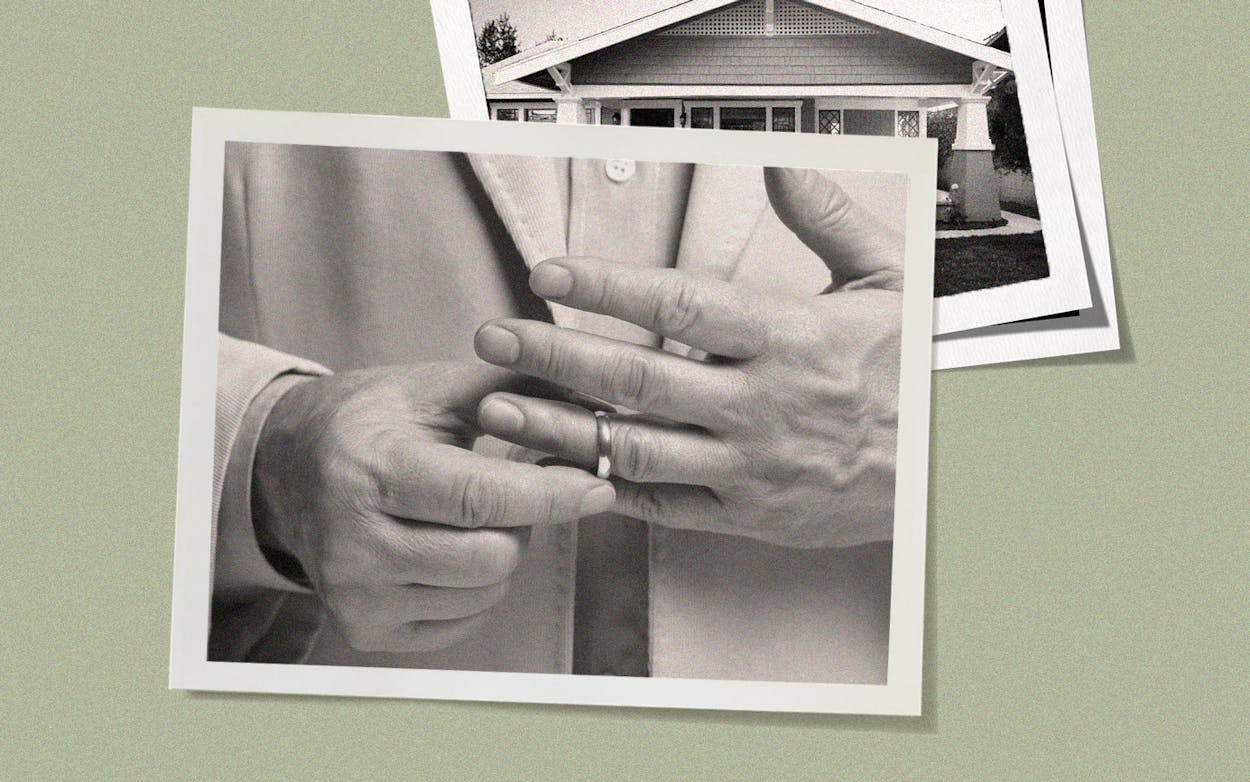A new coronavirus appeared in Wuhan, and now I’m getting divorced.
That thought—one that makes me feel like I could laugh or cry—keeps echoing in my head.
Probably because my brain is trying to understand how something so absurd could also be true. Or how I could go from being a fully functioning adult to living like a teenager in a matter of days.
But here I am, a 38-year-old school administrator who was forced to move back in with my parents because my life—like so many others’—was upended by a pandemic.
The word “divorce” came up for the first time last fall.
My wife was the first one to utter it out loud, but—after taking a few days to think things over—we found ourselves sitting on our living room couch, tearfully discussing how much we missed one another, promising to try to work things out.
We’ve been married for just over three years, together for seven. I’m a laid-back former college basketball player whose idea of a good time is watching Bigfoot cryptozoology videos on YouTube. She’s a super-focused finance whiz whose idea of a good time is training for marathons. Though temperamentally different, to the outside world we look the part of so many millennial couples you see around Austin: smiling, trendy, and athletic, we are the picture of a happy duo building a life from scratch. But we’ve spent a solid year locked in a tense and uncomfortable limbo, unable to resolve disagreements about communication, starting a family, and buying a house.
Last summer, when she returned from an international trip with her girlfriends, something was different. Not only was she no longer wearing her ring, but there was a noticeable distance between us, both physical and emotional.
We had discussed going to counseling, but the time to work through our problems always seemed to fall prey to busy schedules, family obligations, and the holidays. After long days at work I’d retreat to the gym or park in the driveway and play games on my phone. My wife would hide out in our bedroom or find an excuse to fall asleep early.
Drifting through months of unhappiness, I began to wonder how long we could go on living like distant roommates. Something, I kept telling myself, had to change.
A few months later, as the novel coronavirus raced across Texas and talk of sheltering in place increased, I actually wondered whether there might be an unexpected upside to all the apocalyptic fear and upheaval.
Maybe being locked inside our home would give me and my wife a chance to reconnect and rebuild. Sometimes uncertainty and struggle, I mused, can strip away the petty disputes that wall us off from our loved ones, allowing resentments to harden.
That fanciful idea, formed in the deepest recesses of a naively romantic heart, lasted a total of 72 hours. I’d forgotten that uncertainty and struggle, combined with physical proximity, have a way of revealing something else: how people really feel about one another.
Two days into quarantine, I was on my way to the kitchen when I heard my wife talking to a coworker during a video conference. At first I couldn’t believe it was her. Giggling and playful and clearly familiar with the man on the other end, her voice sounded happier than I’d heard it sound in months. It was as if the woman I’d fallen in love with years earlier had suddenly reappeared, transported via time machine. Only this time, she wasn’t talking to me—she was talking to a stranger.
When the conversation ended, I casually asked: “Who was that?”
“I’m working!” she angrily snapped back at me without turning her head. Though she didn’t utter it out loud, she might have well said, “How dare you talk to me!”
I’d been fighting to close the gap between us for years, holding out hope that with enough consistency and effort, she’d start to see and appreciate me. But during that moment in the kitchen, I realized I didn’t exist in her real life. It was as if I was a ghost, hovering on the fringes of someone else’s existence, unseen and unheard. At that moment, I also realized something I’d been avoiding for months: my marriage couldn’t be saved. Stripped of gyms and offices, forced into domestic confines with nowhere to hide, we could no longer avoid the painful truth. Though she couldn’t bring herself to say it, my wife is no longer in love with me. I guess the pandemic didn’t exactly end my marriage. It just revealed that it no longer really existed.
The next day I packed up some belongings and moved in with my parents, who live just north of Austin. The day after that, I called a divorce lawyer.
If this virus hadn’t swelled into a pandemic, maybe I’d still be stuck in an unhealthy relationship. Who knows? My wife and I might have remained in our toxic holding pattern for another six months or another six years. It’s hard to say. We were stuck, each person waiting for the other one to make a move and say what needed to be said.
Coronavirus spoke for us.
If you’d like to share your story, please reach out at tips@texasmonthly.com.
- More About:
- Austin






